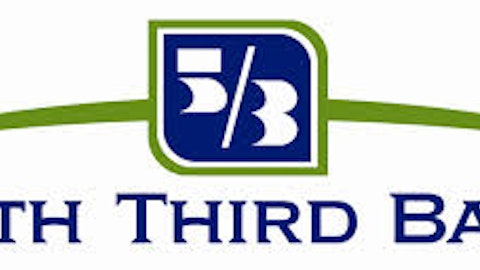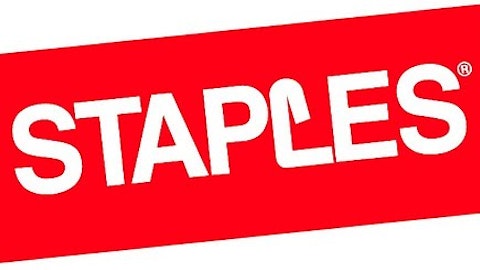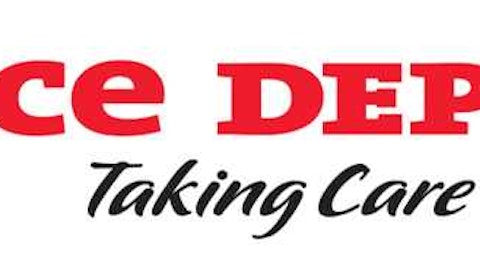In late February, U.S. office-supply rivals OfficeMax (NYSE:OMX) and Office Depot Inc (NYSE:ODP) made the exciting but largely expected announcement that they were in advanced talks to execute a so-called “merger of equals.” Their combination would create a company with annual revenues of around $18 billion and an employee count of nearly 60,000. The announcement comes after a difficult year for both companies. Facing significant declines in revenues and earnings as well as uncertain future prospects in an increasingly competitive office-supply space, Office Max and Office Depot appear to have had little choice but to combine.

About Office Max and Office Depot
Naperville, Illinois-based Office Max operates nearly 1,000 retail office-supply stores in the United States, Caribbean and Mexico. The company sells a wide range of disposable office supplies like paper goods, pens, pencils, staplers, stationery and binders as well as more durable goods like filing cabinets, furniture, technology hardware and printing supplies. Many of its outlets offer full-service printing centers as well as pay-per-minute computer terminals. OfficeMax (NYSE:OMX) distributes a catalog to its business clients and maintains a network of salespeople to execute direct-sales orders for larger customers. The company employs about 19,000 people and earned $414.7 million on gross 2012 revenues of about $6.9 billion.
Boca Raton, Florida-based Office Depot operates in many of the same business areas as its merger partner. In addition to the enterprises and product offerings described above, Office Depot Inc (NYSE:ODP) also maintains a sizable food-and-beverage division that provides its business-to-business clients with water coolers, bulk coffee, snacks and other wholesale refreshments for break rooms, lobbies, waiting rooms and other business-related gathering spaces. The company runs nearly 2,000 outlets in North America and the Caribbean. It also maintains supply contracts and sells branded products to office-supply stores in Asia, the Middle East and Latin America.
How the Deal Is Structured
The terms of this $1 billion all-stock deal are relatively straightforward. On a yet-to-be-determined record date, all Office Max shareholders will receive 2.69 Office Depot Inc (NYSE:ODP) shares for every OfficeMax (NYSE:OMX) share that they own. Once this occurs, Office Max will cease to trade as an independent company.
Since it is comprised entirely of stock, the value of this deal is subject to fluctuation. At Office Depot’s current share price of $4.10, the merger agreement values OfficeMax (NYSE:OMX) at approximately $11.03 per share. Unfortunately, this represents a 9.5 percent discount to Office Max’s current share price of $12.10. It seems likely that Office Depot Inc (NYSE:ODP)’s shares have declined in value in anticipation of the combination. As such, they may be ripe for a short-term correction. Alternatively, Office Depot’s share price might spike shortly after the deal’s completion. Obviously, the market cannot allow this discount to persist for long.
Complications and Potential Legal Issues
Although Office Depot and OfficeMax (NYSE:OMX) are two of the largest office-supply companies that operate in the United States, it seems likely that the proposed deal will eventually pass regulatory muster. For starters, the combined company would still be significantly smaller than its principal direct rival.
In addition, Staples is unlikely to pose the largest single threat to the combined company. These days, many Americans shop for office furniture and supplies at big-box retailers like Wal-Mart Stores, Inc. (NYSE:WMT), Amazon.com, Inc. (NASDAQ:AMZN) and Best Buy Co., Inc. (NYSE:BBY). In fact, Office Depot Inc (NYSE:ODP) and Office Max have struggled to match these larger companies’ prices for years. Lately, they have been forced to offer margin-killing price matches that further erode their long-term competitiveness. In other words, this merger is born out of necessity.
Given the financial struggles that both OfficeMax (NYSE:OMX) and Office Depot have endured in recent years, it seems likely that the companies’ shareholders and boards of directors will lend their support to this deal. As such, it will probably close without undergoing significant changes.
Long-Term Prospects and Outlook
Given that this deal is more or less essential to ensure the survival of both of these companies, shareholders cannot be choosy about its terms. However, there is reason to believe that this merger may actually place the company in an attractive position going forward. Staples’s healthy dividend makes it far more attractive to long-term investors than either Office Max or Office Depot Inc (NYSE:ODP). If the combined company were able to offer even a modest dividend, its stock might see a short-term jump that rewards early investors.
Likewise, the post-combination stock appears likely to recover from its temporary price inversion. Investors who jump in soon after the deal’s completion could be handsomely rewarded.
In sum, the merger between Office Depot Inc (NYSE:ODP) and OfficeMax (NYSE:OMX) holds out the potential of both short-term and long-term gains. While there is currently no arbitrage premium on the table, the deal’s complexion could change in response to market movements. Regardless, the combined company should be well-positioned to weather future challenges.
The article Merger of Office Supply Retailers? originally appeared on Fool.com.
Copyright © 1995 – 2013 The Motley Fool, LLC. All rights reserved. The Motley Fool has a disclosure policy.




